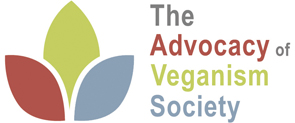What is a vegan? Veganism is a way of life which seeks to exclude by all means, animal exploitation and animal cruelty. This includes many spheres of life such as diet, entertainment, clothing.
Vegans follow a diet that avoids all meat and animal produce. Fish are included in this category as well. They also stay away from animal produced clothing such as leather and generally try to avoid any form of animal exploitation in the form of zoos and carnivals where caged animals are used for entertainment.
The most well recognizable trait of veganism is the diet and this is why many people who I happen to come into close contact with ask if I am a vegan or vegetarian. I do not fit into any of these categories. The problem with adhering to labels created by society is that if you carry it out, it assumes that you align completely with the ideals of that way of life, which I don’t.
I would describe myself as someone who consumes a predominantly plant based diet. This means that I eat mostly fresh foods and foods along the lines of what a vegan would eat. I consume very little to no dairy although I still have it in minute amounts through amalgamation with other ingredients to make different edibles like cake. I still eat fish, which vegans don’t. Meat and dairy cause cancer and all the other major diseases so it doesn’t take a rocket scientist to figure out why I made the decision to cut it out of my diet. I will not go into a detailed overview of my diet but it was important to distinguish how I differ from all these labels and why I could never be defined by one.
As an Afrikan man, in traditional ceremonies carried out by my family or others in the community, I have to participate in rituals involving the slaughter of animals. As fervent a supporter of anti-animal cruelty as I am, I still understand and fully endorse slaughter for these purposes. An animal that is slaughtered and eaten as part of a traditional ceremony is not the same as steaks and lamp chops found in your supermarkets that were ill-treated and abused in abattoirs where they spent their lives stressed and depressed. What your body receives from the meat goes further than just flesh. Excess consumption of meat, as we generally see today, is a contributor to these very symptoms/conditions in humans.
As Afrikans, we have for the longest time used animal hide from ritual and slaughter ceremonies for other purposes. A case in example is how in ancient and present day Afrikan cultures, traditional healers wore leopard skin/hide because of traits the animal has that correspond to human ones. There are many examples of this throughout the continent which is another conversation on its own.

As noble a cause as veganism is, it still has fundamental defects in its ideology that I cannot align myself with. I find the vegan cause as selective and detached from society and lived experience. Many people I’ve met assumed that veganism is more inclined for Europeans (continental or on other’s land), for reasons stated such as price of fresh healthy food and for me most pertinently, the protection of animals.

We all know Europeans love animals, even more than PoC many would argue and herein lies my problem. Simply speaking, Vegans overlook the struggle of actual human beings who suffer far worse suffering and degradation of dignity than animals do. I do not feel that humans are superior to animals. The only difference between humans and animals is consciousness. This is a “controversial” point of view I hold that many “vegans” I know vehemently oppose. Veganism goes hand-in-hand with activism and has through its existence showed that people are able to mobilise when a particular cause resonates with them. Therefore vegans love animals more than PoC, right?
This does not mean however that Afrikans should not or do not already eat healthily. A case in point would be the Rastafarian sisters and brothers who eat a plant-based diet. In rural villages, meals do not revolve around the meat of the dish because all meals don’t include meat. In more suburban areas, many Afrikan youth are also making the switch to veganism/vegetarianism too for their own reasons. It is important to note that I do not attribute healthy eating to Europeans.

There can be no revolution without a health revolution. To optimize our being, we must feed the mind, body and spirit accordingly.
Izwe Lethu
Nfr Sa Ma’at

